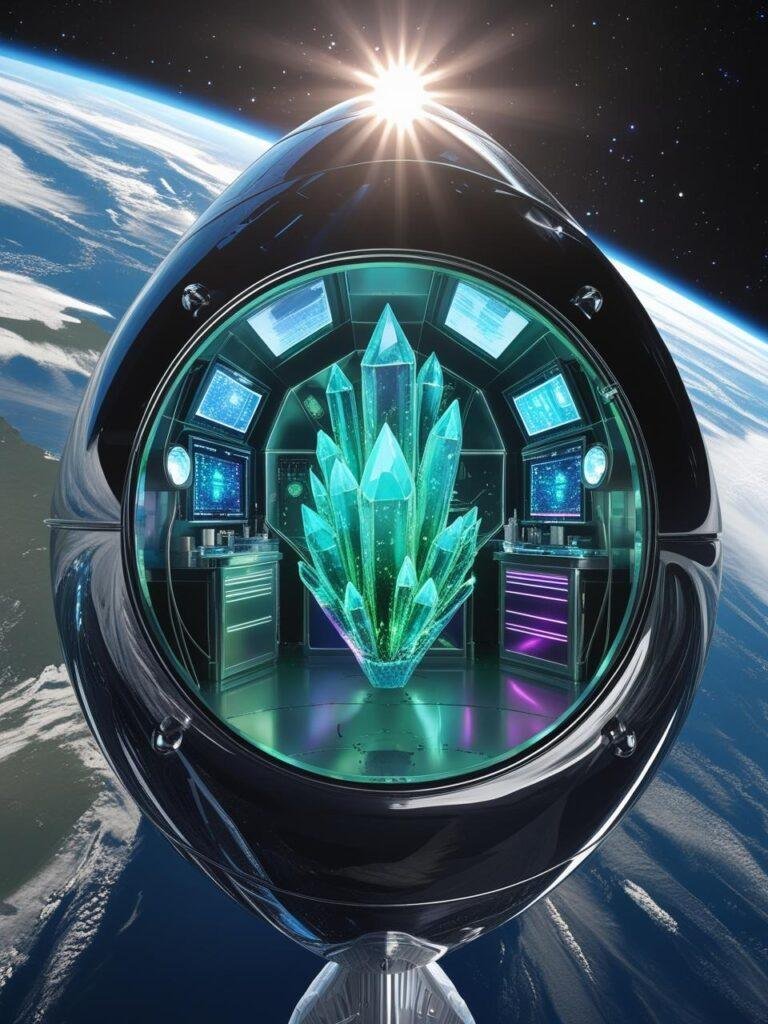Introduction
In a significant milestone for space‑based biotechnology, Varda Space Industries has secured $187 million in Series C funding, bringing its total venture capital raised to approximately $329.4 million. This round marks a substantial validation for the startup’s mission to manufacture pharmaceutical crystals in microgravity aboard rockets and capsules.
The funding, led by Natural Capital and Shrug Capital, will underpin efforts toward more frequent launches and deeper partnerships with pharmaceutical firms. This article delves into the rise of Varda, the mechanics of microgravity drug production, expert reactions, potential impact on drug development, and what’s next for the space‑pharma funding initiative.
Background: Varda’s Origin and Vision
Founded with the ambition to transform pharmaceutical formulation, Varda Space Industries is based in El Segundo, California. The startup leverages microgravity environments—where the absence of sedimentation and convection forces can produce highly uniform crystals. Early in 2023, Varda demonstrated proof of concept with ritonavir, an HIV medication whose crystal structure improved in orbit and remained stable post‑return. Since then, the firm has expanded its focus beyond small‑molecule drug crystals to biological molecules including antibodies.
Along with space‑based processing, Varda has built a unique screening centrifuge—a so‑called hypergravity machine—to vet candidate compounds before committing them to costly orbital missions.
The Series C Fundraise: Backers and Purpose
The $187M Series C round was led by Natural Capital and Shrug Capital, with participation from existing investors. This latest financing will allow Varda to transition to a rapid launch cadence—moving from occasional capsules to monthly or even daily missions. The cash infusion will also bolster engineering, operational logistics, and regulatory compliance efforts needed to satisfy pharmaceutical partners and regulatory authorities.
With three capsules already launched and retrieved—and a fourth currently in orbit—Varda is well positioned to deliver repeatable and scalable drug production in space.
How Microgravity Enhances Drug Crystallization
Pharmaceutical crystal structure is critical: particle size, uniformity, and polymorphism impact solubility, stability, bioavailability, and manufacturability. On Earth, traditional crystallization faces constraints from gravity‑driven convection and sedimentation, which can lead to heterogeneous or unstable forms.
In low‑earth orbit, crystals can grow free of these influences—resulting in purer, more uniform structures that may be unattainable on Earth. Varda’s work with ritonavir is a standout example—producing a novel polymorph that held integrity after descent. If extended to complex biologics such as antibodies, this approach could open pathways to more stable formulations, longer shelf‑life biologics, and advanced drug delivery systems.
Industry & Expert Reactions
Senior biotech analysts note that space‑based manufacturing could revolutionize pharmaceutical supply chains. As one expert commented, “If you can achieve consistently superior crystal forms in orbit, then you have a genuine competitive advantage in formulation science.”
Varda’s entrance into antibody crystal processing marks a turning point; large biologics are typically sensitive to shear and heat, and benefit from gentler crystallization. Some skeptics caution that regulatory approval for space‑manufactured drugs will be complex. However, Varda is reportedly working closely with FDA officials and establishing ground‑based comparability studies to support regulatory filings.
Integration with Pharma Partners
Though Varda has not disclosed partnerships yet, the new financing enables scaling outreach to large pharmaceutical firms. Executives have indicated that companies dealing with poorly soluble compounds or unstable biologic formulations are primary targets. Analysts predict that licensing agreements, joint development pacts, and long‑term supply contracts may follow in the next 12–18 months.
Impact of the Space‑Pharma Funding Round
The Series C not only grows Varda’s balance sheet but signals investor confidence that space‑based manufacturing can cross from novelty to platform scale. It reinforces broader investor appetite for the intersection of space technology and biotech.
Future Outlook: Scaling Missions and Validation
Going forward, Varda aims to launch capsules at monthly or even daily intervals. On-ground hypergravity screening will act as a filter for candidate compounds best suited for orbital crystallization. The company is advancing modular processing capsules compatible with multiple launch providers, lowering per‑mission costs.
Regulatory milestones will matter: comparability studies, clinical grade manufacturing standards, and FDA audits are now top priorities. Varda also plans to share results at upcoming biotech conferences to build credibility in the pharmaceutical community.
Challenges and Risks
Among the challenges are launch cost variability, flight delays, capsule recovery logistics, and handling sensitive biologics in space. Regulatory uncertainty poses another hurdle; as of now, no FDA‑approved drug has used space‑manufactured components.
Conclusion
With its $187M Series C squeeze of capital, Varda Space Industries is emerging as a bold pioneer in the nascent space‑pharma sector. The funding represents a firm step toward routine drug crystallization in microgravity—and may redefine pharmaceutical formulation altogether.




